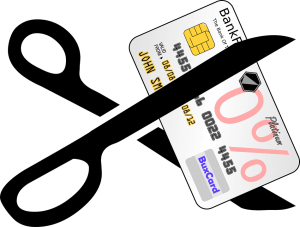Did you cringe just reading the title of this blog? Ugh! Who wants to save money right?! We are not all wired as natural savers. Some of us just want to enjoy our money, have fun, and live in the moment. While this can be great at times, it might feel less great when a big expense comes up and you have to put it on a credit card. Or even worse – you can’t retire because you don’t have a retirement savings plan. Saving money doesn’t have to be a daunting task. By harnessing the power of mental tricks, you can effortlessly cultivate a healthy saving habit without feeling deprived. In this guide, we’ll explore clever ways to save money, all while maintaining a balanced and fulfilling lifestyle.
Budget from a place of abundance and not scarcity
Focus your thoughts on what you are gaining from saving. When we budget for scarcity we reinforce scarcity. When we budget to abundance, we reinforce abundance. Instead of telling yourself that you can’t afford something, tell yourself that you don’t want to spend money on it because you are much more excited about whatever it is that you are saving money for.
Practice gratitude
Being thankful for what you have can help you want less and therefore be able to save more. Having a gratitude practice has also been shown to have huge benefits both mentally and physically. Practicing gratitude can be as simple as writing down one thing every day that you are grateful for. Doing this can decrease depression and anxiety, improve your sleep and mood and, of course, put the extra money in your savings account.
Follow the toothpaste effect
You know when you get down to the last bit of toothpaste in a tube? You manage to make it last by using less and less each time you brush your teeth, until you finally break down and get a new tube. This can be like your money. When you save first, get that money out of your checking account and put it somewhere that is less accessible to you, then you have no choice but to make the money left in your checking account last by spending less!
Picture your dreams and don’t forget them
Close your eyes. Imagine you have reached your financial goal. You are on vacation. You are free of credit card debt. You bought the house. Whatever your dream is. What does it feel like to have reached your goal? What else is different in your life? What emotions are you feeling?
Now make a poster representing all of this so that you can keep these feelings at the forefront of your mind.
Think in terms of hours worked
Often our time feels more valuable than money. It’s more tangible and it’s limited. You can’t earn more of it. So if you make $25/hr after taxes, do you want to work four hours for that $100 meal out? Maybe you do! But maybe you don’t.
Use cash
Credit card companies have made it as easy as possible for us to spend money. You just have to tap your card for most purchases. This creates a dissociation between the purchase and the money you are spending. When you use cash, it just feels more real. It hurts a little to part with the money. Also, if you only have cash in your wallet, you have to be very careful not to overspend. This is a great tactic to stay on budget when grocery shopping or at the mall and be able to save money.
Work through your money story
Only about 15% of what we believe is conscious. The other 85% of our beliefs are subconscious. That means that we aren’t really aware of what we believe. If you aren’t aware of your beliefs, it can be really hard to change them.
How we were raised can have a profound effect on how we handle money and on our subconscious beliefs about money. For example, if your parents were big savers you might follow their lead and do the same. Or you might believe that they didn’t live life as fully as they could have so you do the opposite and never save. You might even believe that if you save money you are wasting your life.
It’s important to bring these beliefs to the conscious mind, recognize where they came from and ask yourself – when is this belief true and when is this belief not true? In the example above you might try to rewire your brain to believe it’s a good idea to save money for the things that are important to you.
Meditate
What?! We’re talking about saving money right?! Having a calm mind is an important part of making sound decisions in any area of your life – especially finances. If you are stressed, you are going to have a hard time overriding your destructive money beliefs.
Think in smaller units of time
Trick yourself into starting to save earlier for a long-term goal by thinking in smaller units of time. For example, if you are saving for retirement that is 40 years away – thinking of it in terms of 14,600 days can make it feel closer and therefore easier to start saving now.
Choose Your friends wisely
They say you are the average of the five people you hang out with the most. You might not be looking to ditch your friends and find new ones but it is important to understand that our brains are very wired to be accepted by our group. If those you spend your time with are buying things that don’t align with your goals and dreams, there is a good chance that you won’t reach your goals and dreams because your money will get spent on other things.
Conclusion
Saving doesn’t have to be daunting. You can transform your relationship with money with some mindset tricks. Embrace gratitude, visualize your dreams, and budget with abundance. Small mental shifts can yield big savings rewards. If all of this feels a bit tricky, ask an Accredited Financial Counsellor for help.





